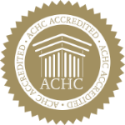CALL 24/7 | 704-944-5575
Compliance Program
- Infinium Health Services follows guidance and compliance recommendations set forth by the Office of Inspector General (OIG) of the Department of Health and Human Services (HHS), to assist them in developing effective internal controls that promote adherence to applicable Federal and State law, and the program requirements of Federal, State, and private health plans.
- The adoption and implementation of a voluntary compliance program significantly advances the prevention of fraud, abuse, and waste in health care plans while at the same time furthers the fundamental mission of home health agencies, which is to provide quality care to their patients.
- The seven elements of an effective compliance plan include:
- the development and distribution of written standards of conduct, as well as written policies and procedures that promote the home health agency’s commitment to compliance (e.g., by including adherence to the compliance program as an element in evaluating managers and employees) and address specific areas of potential fraud, such as claims development and submission processes, cost reporting, and financial relationships with physicians and other health care professionals and entities. development of written policies and procedures; designation of a compliance officer and other appropriate bodies;
- the designation of a compliance officer and other appropriate bodies, e.g., a corporate compliance committee, charged with the responsibility for operating and monitoring the compliance program, and who reports directly to the CEO and the governing body;
- the development and implementation of regular, effective education and training programs for all affected employees;
- the creation and maintenance of a process, such as a hotline or other reporting system, to receive complaints, and the adoption of procedures to protect the anonymity of complainants and to protect whistleblowers from retaliation;
- the development of a system to respond to allegations of improper/ illegal activities and the enforcement of appropriate disciplinary action against employees who have violated internal compliance policies, applicable statutes, regulations, or Federal health care program requirements;
- the use of audits and/or other evaluation techniques to monitor compliance and assist in the reduction of identified problem areas; and
- the investigation and remediation of identified systemic problems and the development of policies addressing the non-employment or retention of sanctioned individuals.
- Fundamentally, compliance efforts are designed to establish a culture within a home health agency that promotes prevention, detection, and resolution of instances of conduct that do not conform to Federal and State law, and Federal, State, and private payor health care program requirements, as well as the home health agency’s business policies. In practice, the compliance program should effectively articulate and demonstrate the organization’s commitment to ethical conduct. The existence of benchmarks that demonstrate implementation and achievements are essential to any effective compliance program. Eventually, a compliance program should become part of the fabric of routine home health agency operations.
- Compliance Program Guidance for Home Health Agencies(63 Fed. Reg. 42410; August 7, 1998)
Infinium Health Services follows guidance and compliance recommendations set forth by the Office of Inspector General (OIG) of the Department of Health and Human Services (HHS), to assist them in developing effective internal controls that promote adherence to applicable Federal and State law, and the program requirements of Federal, State, and private health plans.
The adoption and implementation of a voluntary compliance program significantly advances the prevention of fraud, abuse, and waste in health care plans while at the same time furthers the fundamental mission of home health agencies, which is to provide quality care to their patients.
The seven elements of an effective compliance plan include:
- The development and distribution of written standards of conduct, as well as written policies and procedures that promote the home health agency’s commitment to compliance (e.g., by including adherence to the compliance program as an element in evaluating managers and employees) and address specific areas of potential fraud, such as claims development and submission processes, cost reporting, and financial relationships with physicians and other health care professionals and entities. development of written policies and procedures; designation of a compliance officer and other appropriate bodies;
- the designation of a compliance officer and other appropriate bodies, e.g., a corporate compliance committee, charged with the responsibility for operating and monitoring the compliance program, and who reports directly to the CEO and the governing body;
- the development and implementation of regular, effective education and training programs for all affected employees;
- the creation and maintenance of a process, such as a hotline or other reporting system, to receive complaints, and the adoption of procedures to protect the anonymity of complainants and to protect whistleblowers from retaliation;
- the development of a system to respond to allegations of improper/ illegal activities and the enforcement of appropriate disciplinary action against employees who have violated internal compliance policies, applicable statutes, regulations, or Federal health care program requirements;
- the use of audits and/or other evaluation techniques to monitor compliance and assist in the reduction of identified problem areas; and
- the investigation and remediation of identified systemic problems and the development of policies addressing the non-employment or retention of sanctioned individuals.
Fundamentally, compliance efforts are designed to establish a culture within a home health agency that promotes prevention, detection, and resolution of instances of conduct that do not conform to Federal and State law, and Federal, State, and private payor health care program requirements, as well as the home health agency’s business policies. In practice, the compliance program should effectively articulate and demonstrate the organization’s commitment to ethical conduct. The existence of benchmarks that demonstrate implementation and achievements are essential to any effective compliance program.
At Infinium, the compliance program is an integral part of the day-to-day operations. To maintain the Agency’s commitment to ethical operating practices, a compliance committee develops effective internal controls, which promote adherence to applicable laws and regulations. The Compliance Officer is responsible for overseeing the implementation and oversight of Infinium’s Code of Ethics and Business Conduct as well as developing procedures to receive, assess and reply to complaints and problems. To report any concerns, you may call our office or reach us by email at compliance@infiniumhs.com.
Compliance Program Guidance for Home Health Agencies (63 Fed. Reg. 42410; August 7, 1998)
- Compliance Program Guidance for Home Health Agencies(63 Fed. Reg. 42410; August 7, 1998)
- Infinium Health Services follows guidance and compliance recommendations set forth by the Office of Inspector General (OIG) of the Department of Health and Human Services (HHS), to assist them in developing effective internal controls that promote adherence to applicable Federal and State law, and the program requirements of Federal, State, and private health plans
Let's talk about the care you need
Schedule a brief call to discuss our care options for your loved one.

Infinium Health Services
10130 Mallard Creek Rd., Suite 200
Charlotte, NC 28262
info@ infiniumhs.com
Tel: 704-944-5575
Fax: 704-943-1022
www.infiniumhs.com
Website by Laire Group Marketing


